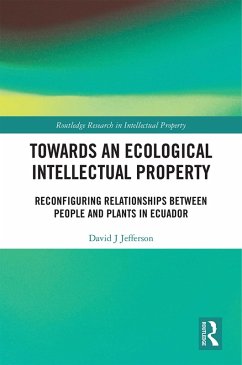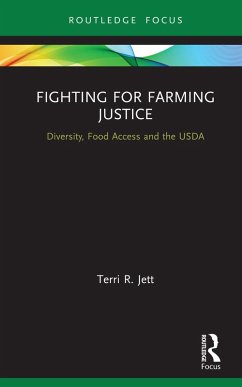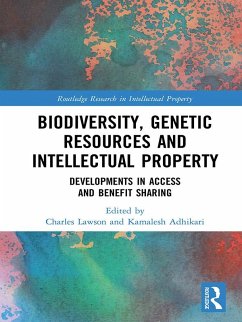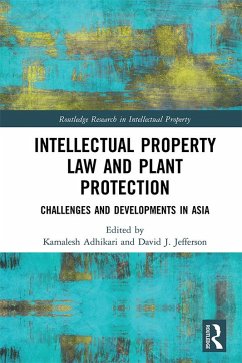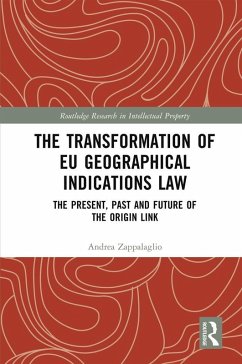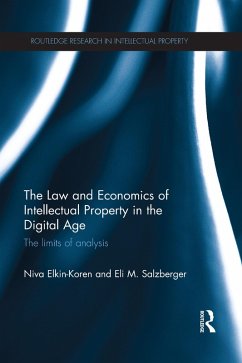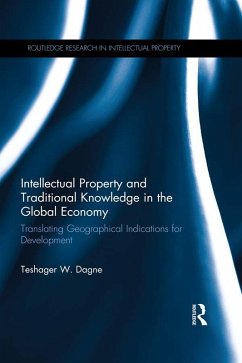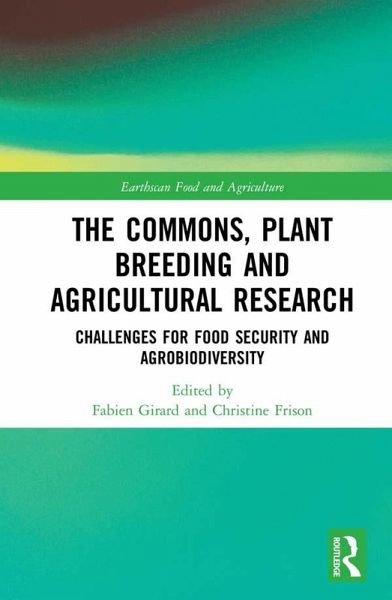
The Commons, Plant Breeding and Agricultural Research (eBook, PDF)
Challenges for Food Security and Agrobiodiversity
Redaktion: Girard, Fabien; Frison, Christine
Versandkostenfrei!
Sofort per Download lieferbar
43,95 €
inkl. MwSt.
Weitere Ausgaben:

PAYBACK Punkte
22 °P sammeln!
The joint challenges of population increase, food security and conservation of agrobiodiversity demand a rethink of plant breeding and agricultural research from a different perspective. While more food is undeniably needed, the key question is rather about how to produce it in a way that sustains biological diversity and mitigates climate change.This book shows how social sciences, and more especially law, can contribute towards reconfiguring current legal frameworks in order to achieving a better balance between the necessary requirements of agricultural innovation and the need for protectio...
The joint challenges of population increase, food security and conservation of agrobiodiversity demand a rethink of plant breeding and agricultural research from a different perspective. While more food is undeniably needed, the key question is rather about how to produce it in a way that sustains biological diversity and mitigates climate change.
This book shows how social sciences, and more especially law, can contribute towards reconfiguring current legal frameworks in order to achieving a better balance between the necessary requirements of agricultural innovation and the need for protection of agrobiodiversity. On the assumption that the concept of property can be rethought against the background of the 'right to include', so as to endow others with a common 'right to access' genetic resources, several international instruments and contractual arrangements drawn from the plant-breeding field (including the Convention on Biological Diversity, technology exchange clearing houses and open sources licenses) receive special consideration. In addition, the authors explore the tension between ownership and the free circulation and exchange of germplasm and issues such as genetic resources managed by local and indigenous communities, the ITPGRFA and participatory plant-breeding programmes.
As a whole, the book demonstrates the relevance of the 'Commons' for plant breeding and agricultural innovation.
This book shows how social sciences, and more especially law, can contribute towards reconfiguring current legal frameworks in order to achieving a better balance between the necessary requirements of agricultural innovation and the need for protection of agrobiodiversity. On the assumption that the concept of property can be rethought against the background of the 'right to include', so as to endow others with a common 'right to access' genetic resources, several international instruments and contractual arrangements drawn from the plant-breeding field (including the Convention on Biological Diversity, technology exchange clearing houses and open sources licenses) receive special consideration. In addition, the authors explore the tension between ownership and the free circulation and exchange of germplasm and issues such as genetic resources managed by local and indigenous communities, the ITPGRFA and participatory plant-breeding programmes.
As a whole, the book demonstrates the relevance of the 'Commons' for plant breeding and agricultural innovation.
Dieser Download kann aus rechtlichen Gründen nur mit Rechnungsadresse in A, B, BG, CY, CZ, D, DK, EW, E, FIN, F, GR, HR, H, IRL, I, LT, L, LR, M, NL, PL, P, R, S, SLO, SK ausgeliefert werden.




